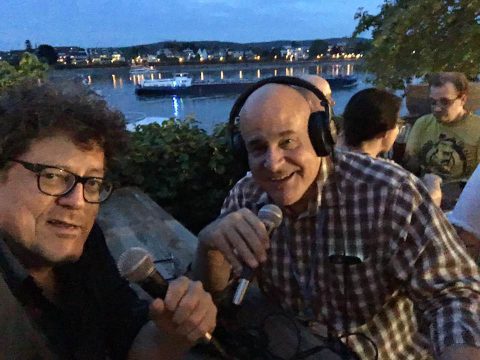Steve Zwick for Ecosystem Marketplace “Several European organsations are experimenting with voluntary carbon markets to drive down greenhouse-gas emissions, often in cooperation with state and federal governments. The Dutch effort is called the “Green Deal”, and proponent Jos Cozijnsen hopes “to make it work by making carbon trading fun.”
30 January 2018 | UTRECHT | The Netherlands |Jos Cozijnsen shakes his tangled black mane and adjusts his leathery blue suit – fashioned, it turns out, from overalls discarded by German railroad workers and available through his sustainable clothing company, Goodfibrations.
“[If you have] an office park, the Building Act says how much energy efficiency you need,” he explains. “But if you go to zero energy use, you do much more.”
When it comes to fixing the climate mess, he wants everyone to do much more than the law requires, especially his fellow Dutchmen. Indeed, it seems to bother him immensely that here in the Netherlands – the birthplace of wind energy and the headquarters of Greenpeace – the average Dutchman contributes far more to climate change than does the average Swede, Swiss, or Frenchman.
But the Dutch are also notorious penny-pinchers with fervent pride in their local communities and a deep love of games and puzzles – three traits that he thinks will help them drive emissions down dramatically under a nationwide voluntary carbon program called the Green Deal, which he’s spearheading along with the Ministry of Environment and several environmental NGOs.
EU ETS is a “compliance” program that legally caps greenhouse-gas emissions on some of Europe’s biggest industries – including electricity, paper, and steelmaking. It requires companies in those sectors to either reduce their emissions or buy offsets from projects that do, but it also leaves more than half of all emissions outside the regulatory apparatus.
The Green Deal is a “voluntary” program, he says, and its goal is to dramatically drive down emissions in un-capped sectors like agriculture and automotive, and to do so by encouraging people to develop carbon projects under existing standards like the Verified Carbon Standard, CarbonFix, and the Gold Standard. The project will encourage un-capped companies and individuals to first reduce emissions by reducing energy use and becoming more efficient, but it will couple that by promoting home-grown projects that generate offsets by planting trees or helping farmers reduce their emissions from methane and other greenhouse gasses. It will include a hub so people can see which type of projects are located where, and it will encourage groups to aim for zero net emissions.
“That’s the fun,” he says. “I can go to zero!”
Like coupon-collectors? I ask.
“Exactly!” he says.
This article appeared on Ecosystem Marketplace, January 30th, 2018
